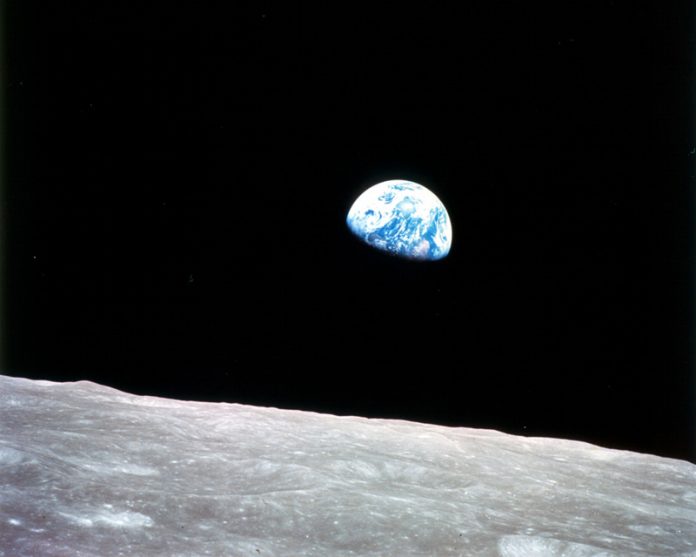In this article, tech experts in the space sector discuss the oncoming colonisation of planets and the evolving status of space law
We are rapidly moving towards colonising other planets for human life: SpaceX, Blue Origin, and other smaller businesses in the space sector are all hoping to win lucrative contracts from the likes of NASA and other national space agencies to begin the colonisation process
Space travel is steadily becoming cheaper, easier, and more accessible thanks to advancements in technology, and some experts are claiming that we may be living on the moon by 2030. And while we haven’t even set foot on Mars, there are already plans in place to colonise our closest planetary neighbour.
VHR is a technical recruitment company that works in the space sector, and they’ve seen more enquiries into staffing solutions for space projects over the last three years than in the previous decade combined. Activity in the sector is only getting more competitive, and more and more engineers are looking at transitioning into the space market.
Business leaders, climate scientists, and futurists of all kinds point towards the colonisation of the moon and other planets as a necessity for the human race to survive the next century given dwindling resources, destructive and unpredictable weather patterns, and toxic pollution poisoning our water, not to mention the possibility of nuclear war.
But beyond the practical problems of moving people and resources into space, and the technology that would be required for the long journeys to the destination, there is the question of how colonies would be governed. How would laws work in space?
What are the current space laws?
Space laws already exist. They pertain to anything to do with space and the activities happening within it. Space law is currently made official legislation by collaborative bodies such as the UN. This extends to the concept of ownership, space exploration, salvage rights, liability for damage, weapon use, environmental protection, and ethics.
Space lawyers are already in employment, with many private entities attempting to understand how legal issues in space will operate in the future. Space lawyers are experts in traditional fields of law as well as understanding the complexities of space travel.
A relatively new field of study, the first legal certificate programme for the study of space law began in 2008. Now there are widespread programmes and courses across the world which will only grow in importance over the coming decades.

Space law technically began as early as 1919, with international law recognising each country’s sovereignty on the airspace above it, which was later cemented in 1954. In 1960, the International Institute of Space Law was founded to promote international cooperation in the creation of space laws. With the advent of space travel and now private launches, space law has become increasingly important to businesses looking to extend their reach beyond Earth.
But how does this relate to the creation of new colonies?
How would colonies be governed?
Currently no nation can lay claim to any land on the moon.
The Moon Treaty (or the Treaty on Principles Governing the Activities of States in the Exploration and Use of Outer Space, including the Moon and Other Celestial Bodies) has been signed or ratified by 17 parties, making it international law. The Moon Treaty directly prohibits ownership by any nation, so the moon is, in a way, a nation unto itself. Ratified in 1967, the treaty may soon need updating when we arrive.
The main problem is that the moon currently has no legal framework created by its own population, because there isn’t one. As there is no governing body presiding over it, a challenge could be made when a colony is founded.
If, as the law currently stands, no nation can claim land to make a satellite colony (essentially an extension of their own country), then any colony would have to be considered an independent state. Today’s laws would require this new settlement to be neutral, international, and non-military, which is difficult to imagine in the current political climate.
However, none of the biggest players in the colonisation game i.e. the USA, Russia, China, have not actually signed the treaty.
There is another option: the first colonisation effort on another planet by the human race may be undertaken by a private company. One of the most important elements of space law is to do with territory and land ownership. Under the Treaty, private entities cannot own land on the moon. However that hasn’t stopped commercial businesses already looking at resource extraction from other planets, and mining asteroids.
While asteroids couldn’t be owned by countries, they could be owned by private corporations. Who gets those resources, how they’re extracted, and how they’re returned to Earth could all be subject to legal debate.
Because the field of space law is so new, there are very few precedents to look at.
Currently, due to The Outer Space Treaty, the countries from which spacecraft launch can be held accountable for the actions occurring in space, even if they’re enacted by private companies. This will likely be changed as more private companies begin to offer space tourism as a service. As space tourism transitions into colonisation, private companies will no doubt be held accountable as they are on Earth.
When we do finally achieve a colony on the moon, it could be that those living there will be kept under a legal microscope to ensure that no country or business is getting an unfair advantage.
If we’re lucky, a more utopian cooperative approach with have been agreed upon prior to the colony being founded, with multiple countries agreeing to supply resources for the endeavour.
Will Colonies be independent?
But then the question of independence arises. Would the moon, or Mars, wish to become independent and sovereign states, in charge of their own laws?
Once the colonies become self-sustaining, and are actively sending resources or profits back to Earth, it’s not unlikely that the residents might resent being under Earth control, and obeying laws they never had any say in.
These colonies won’t just be missions, at a certain point they’ll become communities, with their own identities, ideas, and ideologies, which be wildly different from the agency or company that sent them. They may even opt for entirely different models of government. Given the entire goal of space exploration is for new societies to exist beyond Earth, those settlements must surely be self-governing, and free from external control.
The establishment of the first colony beyond Earth would be one of the biggest events in human history, and a definitive moment that marks the end of one era, and the beginning of a new one.
How this is handled legally will largely define the future of that colony. The issue of law should not be left to chance, or assumed to be as simple as installing a democracy that answers to the UN.
Unfortunately, there are no easy answers to this problem, only time will tell how colonies in space will be governed.
VHR is a technical recruitment company that works in the space sector.











